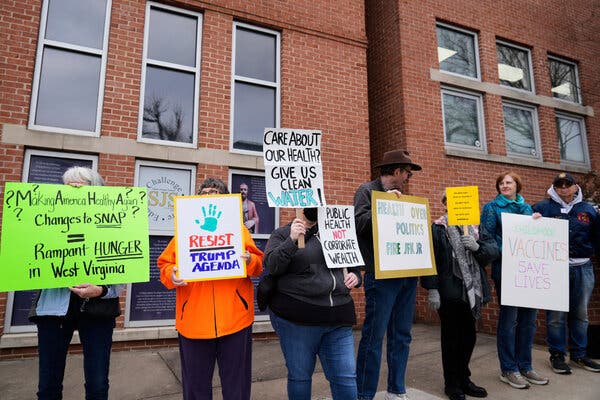Kennedy’s Crusade Against Sugary Drinks and SNAP
Health and Human Services (HHS) Secretary Robert F. Kennedy Jr. in a bold stride towards transforming the nutrition dynamics of the United States, has instigated a campaign to outlaw the use of Supplemental Nutrition Assistance Program (SNAP) funds for the purchase of sugary beverages and sodas. The underlying premise is that taxpayers’ money should not facilitate the consumption of food items that are potentially associated with chronic ailments such as diabetes.
Interestingly, the U.S. Virgin Islands hold the record for one of the highest SNAP utilization in U.S. territories, as per data mid-2025, around 15,000 individuals from the total 87,000 population hold reliance on SNAP. This indicates an approximate 17–18% of the population receiving SNAP assistance, contrasted with the overall U.S. population where the percentage stood at 12.5% in 2023.
Kennedy, while addressing an event in West Virginia, strongly remarked, ‘No U.S. taxpayer should fund food items for the nation’s underprivileged children that could lead them to develop diseases such as diabetes.’ His stance, a significant part of the ‘Make America Healthy Again’ (MAHA) programme, ignited a torrent of discussions with supporters appreciating the emphasis on public welfare and critics cautioning about potential harm and unforeseen implications for less affluent families.
Several states including Nebraska, West Virginia and more, inspired by Kennedy’s campaign, have initiated the adoption of these limitations. The campaign finds its basis on the substantial cost of SNAP that Kennedy identifies as ‘$405 MILLION a day’ with ‘10% being spent on sugary beverages’ and ’13 to 17%’ including candies.
Despite disagreements on accuracy, it is undeniable that these figures significantly emphasize how a prominent part of SNAP expenditure is directed towards items that further compound health problems, namely obesity and diabetes. This, in turn, places a greater load on public health dispensations like Medicaid.
The SNAP scheme, overseen by the USDA, permits using its benefits for most food items, barring alcohol, hot meals, and tobacco. However, to exclude specific products like soda, it requires exceptional state waivers or direct Congressional actions. Kennedy has been instrumental in persuading governors to seek these waivers.
Nebraska made headlines when it became the first state to obtain USDA endorsement in May 2025 to impose a ban on energy drinks and sodas. By August, this trend saw expanding entries from states like Arkansas, Idaho, Indiana, Iowa, Utah, Louisiana, Colorado, Oklahoma, Texas, Florida, and West Virginia, either emulating the Nebraska model or announcing future plans, an unequivocal indication of a budding movement at the state level.
This policy direction is in sync with Kennedy’s larger MAHA initiative, which emphasizes on viewing healthy eating habits as a national obligation comparable to performing one’s patriotic duties. Kennedy suggests that curbing SNAP provisions could effectively decrease healthcare expenses and improve health outcomes, especially for lower-income children who are susceptible to diet-related ailments.
Kennedy defends individual freedom, asserting that, ‘In a democracy like ours, everyone has the right to make choices, including deciding what to purchase or not. If one wishes to buy a soda loaded with sugar, they have the freedom to do so, but it should not be the U.S. taxpayer burden to pay for it.’ This viewpoint is meant to challenge critics who contend such restrictions impede personal autonomy and unfairly stigmatize SNAP beneficiaries.
The proposed limitations have received applause from supporters, viewing it as a rational step to align public expenses with public health objectives. However, it also faces stringent objection from industrial groups and anti-hunger advocates. These dissenters label such restrictions as ‘illicit and terrible public policy’ that target families with lower incomes without addressing the larger structural issues such as the cost of healthier substitutes, or food deserts.
The American Beverage Association has also voiced its opposition, arguing that the soda intake of SNAP beneficiaries parallels that of the overall population, and any prohibitions would unfairly impose compliance costs on retailers without a clear health benefit. Earlier attempts to limit SNAP-affiliate purchases made by states like Minnesota in 2004 and Maine in 2018 were overruled by the USDA due to logistical challenges, casting doubts on the viability of Kennedy’s proposed vision.
Skeptics also contend that Kennedy’s SNAP daily spending estimate of $405 million may overinflate the actual costs, given the USDA’s reported expenditure of $112.8 billion in 2023. They question whether such bans would actually decrease soda consumption without a broader initiative to improve access to nutritious food.
The issue also brings to light conflicts within the federal government itself. As SNAP falls under the USDA’s jurisdiction, some in the agency view Kennedy’s intervention as an overreach by the HHS. Yet, the support garnered has paved the way for state waivers, demonstrating a rare moment of alignment between these two agencies.
As part of the wider MAHA agenda, there are ongoing efforts like banning artificial food dyes, amending dietary guidelines, and promoting exercise. This agenda continues to gain momentum with organizations like the FDA and HHS actively working to classify ultra-processed food. The effectiveness of these initiatives may hinge on Kennedy’s ability to maintain bipartisan support and successfully navigate the intricate political world of food policy.



